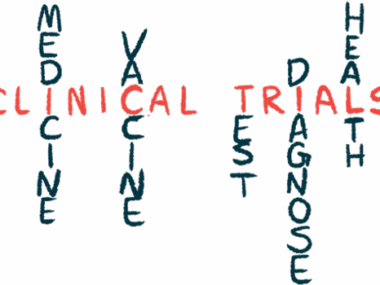Intravenous Ibudilast Safe, Tolerated Well Among Healthy Volunteers
A Phase 1 clinical trial testing 10 mg of the treatment recently finished
Written by |

A new formulation of MediciNova’s investigational amyotrophic lateral sclerosis treatment ibudilast (MN-166) given via an intravenous (into the vein) infusion was found to be safe and well tolerated in healthy volunteers.
That’s according to data from a recently completed Phase 1 clinical trial that tested the safety and tolerability of a 10 mg dose of it. All side effects were mild and none were unexpected.
The formulation is being developed mainly for people with life-threatening inflammatory disorders that require immediate treatment, such as acute respiratory distress syndrome, sepsis, and cytokine release syndrome. But it could also be an option for people with ALS or other conditions who can’t swallow the oral capsules.
“We are pleased with the results from this Phase I trial and are excited to evaluate the potential of the MN-166 [intravenous] formulation in acute and severe clinical settings that require fast bioavailability,” said Kazuko Matsuda, MD, PhD, MediciNova’s chief medical officer, in a company press release.
This “formulation will expand the clinical utility of MN-166 by enabling the treatment of indications for which the oral formulation is not suitable,” Matsuda said.
In ALS, the nerve cells responsible for controlling voluntary movements become progressively damaged over time. The exact causes behind this damage are unclear, but inflammation is thought to play a role.
Ibudilast is a small molecule designed to block the action of three proteins — PDE4, PDE10, and MIF — that are released by white blood cells into the bloodstream to set off an immune response. By blocking these molecules, the medication is expected to turn off the production of inflammatory molecules and switch on the production of protective, anti-inflammatory molecules.
It also reduces the activity of glial cells, a type of supporting cell in the brain that’s overly active and causes damage in ALS. These actions combined are expected to ease the symptoms of ALS.
Data from a Phase 2 clinical trial (NCT02238626) showed ibudilast, when given in combination with the approved therapy Rilutek (riluzole), significantly increased the proportion of patients who had no functional decline over six months of treatment compared with Rilutek alone. It also helped patients live longer.
The company is now investigating ibudilast in a Phase 2b/3 trial, dubbed COMBAT-ALS (NCT04057898), which is enrolling up to 230 participants at more than 20 clinical sites in the U.S. and Canada. Participants will receive ibudilast twice daily (up to 100 mg a day) or a placebo along with their standard ALS medications.
The trial will last a year, after which participants will be able to enter an open-label extension part where all will receive ibudilast for another six months.
Ibudilast was granted fast track and orphan drug designations from the U.S. Food and Drug Administration (FDA), and orphan drug status in Europe for treating ALS.
Matsuda said the company will ask the FDA for guidance in developing a plan that would lead to the therapy’s approval.






